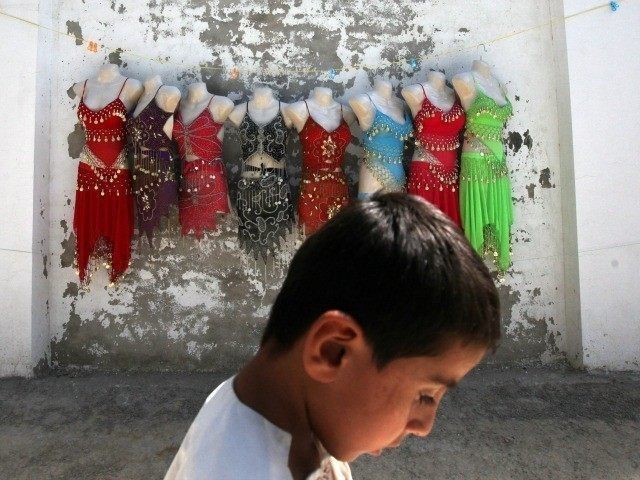Afghanistan intelligence operatives have discovered rampant sexual abuse of minors at a Taliban-run prison in southern Helmand province.
The National Directorate of Security (NDS) arrested four suspects in the southern Helmand province. Taliban group leader Mullah Mazlumyar ran the prison in question.
The authorities released 14 civilians from the prison.
Sexual abuse allegations in Afghanistan are widespread, both against Taliban members and Afghan soldiers. Sgt. 1st Class Charles Martland faces discipline because he confronted an Afghan local police (ALP) commander accused of raping a 12-year-old boy. Fox News reports:
The 2011 incident occurred at the remote outpost where Martland was stationed. The boy and his mother showed up at camp, and the boy showed the Green Berets where his hands had been tied. A medic took him to a back room for an examination with an interpreter, who told them the boy had been raped by a man identified as Afghani Police commander Abdul Rahman.
Rahman allegedly beat the boy’s mother for reporting the crime after learning that they went to the Army outpost. This led Martland and team leader Daniel Quinn to confront Rahman.
Martland faces discharge, but the army delayed the decision until May 1.
Col. Steve Johnson said in response to this case that the United States soldiers should tolerate Afghan customs, implying that sexual abuse of minors is a cultural act.
“You cannot try to impose American values and American norms onto the Afghan culture because they’re completely different. … We can report and we can encourage them,” Col. Johnson told The News Tribune. “We do not have any power or the ability to use our hands to compel them to be what we see as morally better.”
The Afghan practice of bacha bazi, or “boy play,” has made a resurgence in recent years. Men use orphans and poor young males to become their “dancing boys” as forms of entertainment. These exploitations often result in rape and sexual abuse of the vulnerable young males.
The older men will use males as young as ten years old.
Abdul, who did not provide his real name, showed Radio Free Europe/Radio Liberty (RFE/RL) how he dances.
“I used to work as a street trader,” he said. “When I saw the money which dancers got I stopped working on the streets. I was really happy when I started getting this kind of money. It was a lot. I started dancing because of my family’s bad financial situation.”
Afghanistan has outlawed bacha bazi, but authorities do little to enforce the law. Some videos show police officers participating in the dance events.

COMMENTS
Please let us know if you're having issues with commenting.